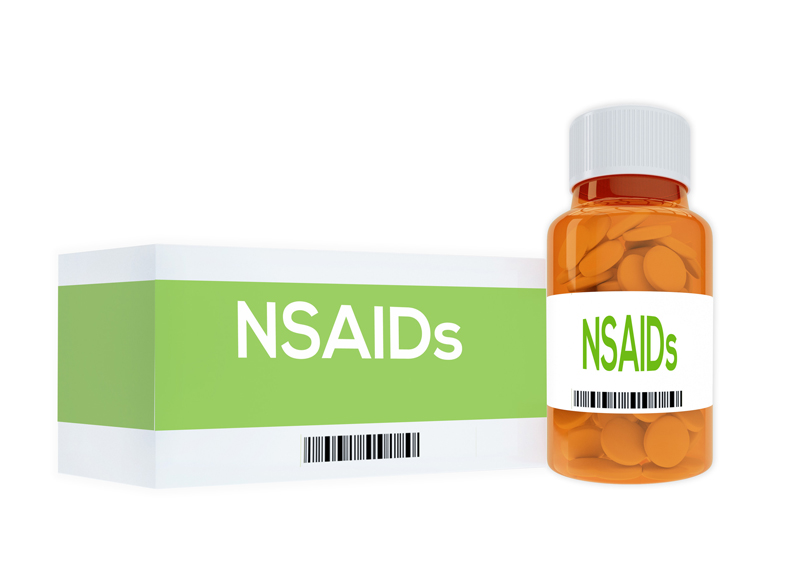
In any healthcare setting, patient diagnosis and treatment protocols have to be properly and accurately documented to ensure appropriate treatment and care. A clear understanding of various prescribed drugs, their interactions with each other, side effects, and precautions to take is necessary for healthcare providers. To ensure error-free and timely medical charts, many physicians and health systems utilize in-house or outsourced medical transcription service. NSAIDs (non-steroidal anti-inflammatory drugs) are often prescribed to treat pain and inflammation. Inflammation is the immune system’s response to infections or injury. The signs of inflammation are heat, redness, and swelling, and the body gets pain signals from nerve receptors when inflammation occurs. These signals are due to complex responses and interactions between cells and chemicals present in the body. Anti-inflammatory drugs reduce pain by reducing inflammation. These drugs are used to relieve symptoms of pain, stiffness, swelling and fever.
NSAIDs are often given for cramps, aches and pains, or for pains along with fever or swelling. Many of these drugs are available over the counter as they are safe and are used as per the label. Some of the OTC drugs are Ibuprofen, Aspirin, Naproxen Sodium; and prescription NSAIDs include Oxaprozin, Etodolac, Indomethacin, Naproxen, Nabumetone, Diclofenac and so on.
However, there are some risks in taking these drugs, if they are taken for a long period of time. So it is important to seek the advice of physicians when taking NSAIDs for long-term pain complaints.
Functions of NSAIDs
There are various drugs under the category of NSAIDs with different chemical structures. But they all have the same functions of
- Reducing high temperature
- Reducing inflammation
- Reducing pain
NSAIDs work gradually with the formation of compounds known as prostaglandins. Prostaglandins play a significant role in the body’s inflammatory response. Minimizing the amount of prostaglandins produced by the tissue damage reduces inflammation. NSAIDs block an enzyme called cyclooxygenase, also known as COX. The COX enzyme helps the reactions that produce prostaglandins.
NSAIDs are used to ease pain in a number of conditions like arthritis, backache – particularly long-term pain in the lower back, cold or flu, headaches, period pains, joint or bone injuries, sprains, and strains, muscle or joint complaints, toothache and so on.
NSAIDs like aspirin are consumed by people to help prevent artery disease that can lead to heart attack or stroke. It may also be used to reduce the risk of some types of colorectal cancer. Similarly, for many years, NSAIDs were given to patients to treat symptoms of the common cold. But these drugs do not kill the virus or improve the course of illness. A systematic review of the best available evidence for treating a common cold with NSAIDs shows that they produce significant results with regard to headache, ear pain, and muscle and joint pain.
NSAIDs – Precautions and Side Effects
The body’s response to NSAIDs differs from person to person and there may be side effects. There is a high chance of experiencing side effects if patients take a high dose of NSAIDS for longer periods of time. So here are some precautions to keep in mind:
- If the patient is taking any other medicine, then they should let their pharmacist know about it.
- Taking excessive amounts of NSAIDs and drinking alcohol can irritate the gut and increase the risk of internal bleeding.
- There can be adverse effects if the patient is taking more than one NSAID.
- Patients should not take NSAIDs at the same time as anti-clotting drugs such as aspirin or Warfarin.
- Patients must follow the label for the particular NSAID they are using because each drug in this category is different.
- NSAIDs should not be given to children who are below 16 and people who are 65 and above.
- People who are allergic to NSAIDs, pregnant women, people who have asthma and anyone with heart disease should avoid consuming NSAIDs or take them only with medical guidance.
The side effects of NSAIDs can be severe or mild and differs from one person to another. As mentioned earlier, people who consume high doses of NSAIDs are more likely to experience side effects. Mild side effects can be indigestion, headache, dizziness, and drowsiness. Severe side effects could be problems with the kidneys, liver, circulation, fluid retention and so on. NSAIDs can increase the blood pressure; they reduce the blood flow to the kidneys, and slow down the functioning of the kidneys.
Another adverse effect of NSAIDs is that, long-term consumption of NSAIDs can lead to ulcers in the gut known as peptic ulcers. NSAIDs reduce the actions of prostaglandins, which reduce inflammation; however, prostaglandins also protect the stomach lining by helping it to produce mucus. In this way, NSAIDs leave the stomach open to the effects of acid.
So, people who take NSAIDS for a long period of time should consult their physicians to avoid any severe side effects. Accurate medical notes prepared with the assistance of a medical transcription companies prove valuable for both physicians and patients. Only with such reliable medical documentation, can physicians decide on the right treatment plan and provide the right medical advice to their patients.


